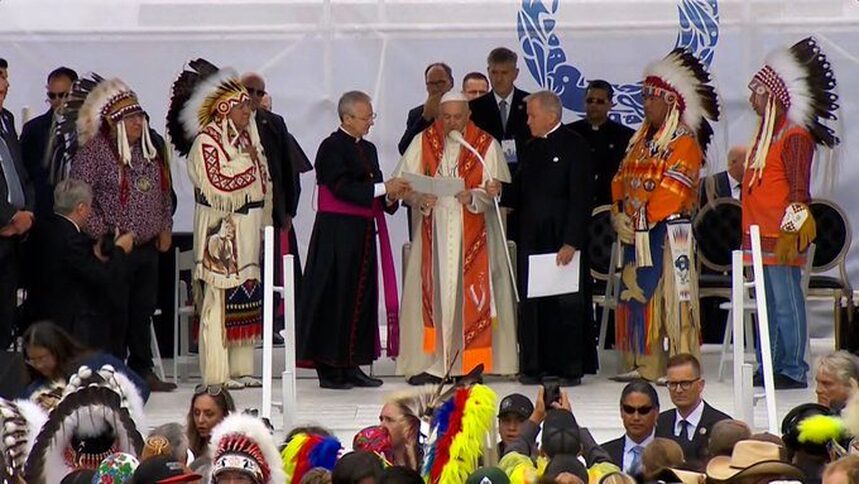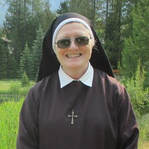|
The Canadian Conference of Catholic Bishops (“CCCB”) is grateful that the Dicastery for Culture and Education and the Dicastery for Promoting Integral Human Development have issued a Joint Statement addressing the concept of the “Doctrine of Discovery,” including the question of certain papal bulls of the 15th century which, according to some scholars, served as the basis for the aforementioned ‘doctrine.’
Contrary to this claim, numerous and repeated statements by the Church and the Popes through the centuries have upheld the rights and freedoms of Indigenous Peoples, for example the 1537 Bull Sublimis Deus. Indeed, Popes in recent times have also sought forgiveness on numerous occasions for evil acts committed against Indigenous Peoples by Christians. Having heard a strong desire from Indigenous Peoples for the Church to address the ‘Doctrine of Discovery,’ today’s Joint Statement from the two Dicasteries further repudiates any concepts that fail to recognize the inherent rights of Indigenous Peoples. Specifically, the Joint Statement affirms: “In no uncertain terms, the Church’s magisterium upholds the respect due to every human being. The Catholic Church therefore repudiates those concepts that fail to recognize the inherent human rights of indigenous peoples, including what has become known as the legal and political ‘doctrine of discovery’.” The Joint Statement further emphasizes that the ‘Doctrine of Discovery’ is not part of the teaching of the Catholic Church and that the papal documents under scrutiny by some scholars – particularly the Bulls Dum Diversas (1452), Romanus Pontifex (1455) and Inter Caetera (1493) – have never been considered expressions of the Catholic faith. At the same time, it acknowledges that these papal bulls did not adequately reflect the equal dignity and rights of Indigenous Peoples; that they were manipulated for political purposes by competing colonial powers; and that Indigenous Peoples suffered the terrible effects of the assimilation policies of colonizing nations. Furthermore, the Joint Statement expresses support for the principles in the United Nations Declaration on the Rights of Indigenous Peoples, the implementation of which would help to improve the living conditions of Indigenous Peoples, to protect their rights, as well as to support their self-development in continuity with their identity, language, history, and culture. The CCCB, the United States Conference of Catholic Bishops (USCCB), and the Pontifical Committee for Historical Sciences are together exploring the possibility of organizing an academic symposium with Indigenous and non-Indigenous scholars to further deepen historical understanding about the ‘Doctrine of Discovery.’ This idea of a symposium has likewise received encouragement from the two Dicasteries that issued today’s Joint Statement. In closing, the CCCB echoes Pope Francis’ statement from Quebec City in July 2022, cited in today’s Declaration, that “never again can the Christian community allow itself to be infected by the idea that one culture is superior to others, or that it is legitimate to employ ways of coercing others.” 30 March 2023
0 Comments
Learn more about this unique vocation here.
|
Author
Catholic Pastoral Centre Staff and Guest Writers Archives
July 2024
Categories
All
|





 RSS Feed
RSS Feed